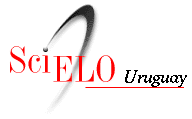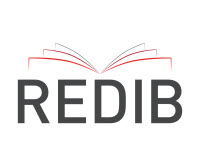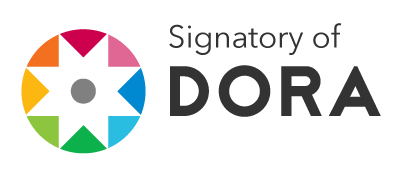Educación en ética de la información en África Austral
Aproximación conceptual y modelo de currículum para la formación de nivel universitario
Resumen
Este trabajo propone el Modelo de Currículum en Ética de la Información, un modelo de educación heurística de nivel universitario, destinado a promover el uso favorable de información segura y responsable, en los escenarios multiculturales a través de África Austral. El Modelo es diseñado para crear conciencia sobre los desafíos éticos planteados por las modernas tecnologías de la información y la comunicación (TICs) entre los habitantes de la región del África austral. Se persigue también dotar a los estudiantes con el conocimiento, el entendimiento y las competencias necesarias para sus búsquedas y usos de información crítica, para sí y para el empoderamiento de otros. Este artículo describe los fundamentos teóricos y conceptuales del Modelo y proporciona orientaciones básicas para aplicar el modelo en los niveles universitarios de grado y posgrado.
Descargas
Citas
African Centre of Excellence for Information Ethics. Annual report: 1 January 2014 - 31 December 2014. (2014). African Centre of Excellence for Information Ethics, University of Pretoria. Retrieved from https://www.up.ac.za/african-centre-of-excellence-for-information-ethics/article/2460908/annual-reports
ANIE. (2007). Tshwane declaration on Information Ethics in Africa. Adopted on 7 February 2007 at Africa Information Ethics Conference. Pretoria. RSA. Africa Network for Information Ethics.
Barnett, R., & Coate, K. (2004). Engaging the curriculum in higher education. Maidenhead, UK: Open University Press.
Bell, D. (1980). Sociological journeys essays 1960-1980. London, UK: Heinemann.
Bester, B. C. (2018). Development of a framework for teaching Information Ethics to various communities in Southern Africa (Unpublished doctoral dissertation). University of Pretoria, Pretoria, RSA.
Bobbit, F. (1918). The Curriculum. Cambridge, UK: The Riverside.
Boghossian, P. (2006). Fear of knowledge: Against relativism and constructivism. Oxford, UK: Oxford University Press.
Capurro, R. (2007). Information Ethics for and from Africa. International Review of Information Ethics, 55, 1-13.
Capurro, R., Britz, J. J., Bothma, T. J. D., & Bester, B. C. (Eds.). (2007). African reader on Information Ethics. Pretoria, South Africa: African Centre of Excellence for Information Ethics.
Doll Jr., W. E. (1993). A post-modern perspective on curriculum. New York, NY: Teachers College Press.
Douglass, K. (2012). A framework for understanding the teaching of Information Ethics in Africa. Libri, 62, 19-40.
Drucker, P. F. (1993). Post-capitalist society. New York, NY: HarperBusiness.
Gagne, R. M. (1967). Curriculum research and the promotion of learning. In R. E. Stake (Ed.), Perspectives of curriculum evaluation (pp. 19-38). Chicago, IL: Rand McNally & Company.
Kelly, A. V. (1989). The curriculum: Theory and practice (3rd ed.). London, UK: Paul Chapman Educational Publishing.
Malan, B. (2001). Curriculum 2005: Transformation and outcomes-based education (Unpublished doctoral dissertation). Rand Afrikaans University, Johannesburg, RSA.
Malan, B., Bester, C. (2014). Curriculum to teach Information Ethics at universities in Africa. Pretoria, South Africa: African Centre of Excellence for Information Ethics.
Muller, J. (2000). Reclaiming knowledge: Social theory, curriculum and education policy. London, UK: RoutledgeFalmer.
Musson, D. (2007). The production of Mode 2 Knowledge in higher education in South Africa.
Retrieved from Proquest Dissertations & Theses Global. (Order No. 0818627)
Spady, W. G. (1992). It’s time to take a closer look at outcomes-based education. Outcomes 11(2), 6-13.
Spady, W. G. (1995). Outcomes-based education: Critical issues. Alexandria, VA: American Association of School Administrators.
Tshwane Declaration on Information Ethics in Africa. (2007). African Network for Information Ethics, University of Pretoria. Retrieved from https://www.up.ac.za/african-centre-of-excellence-for-information-ethics/article/2616104/tshwane-declaration
Tyler, R. W. (1949). Basic principles of curriculum and instruction. Chicago, IL: University of Chicago Press.
United Nations Educational, Scientific, and Cultural Organization. (n.d.). Information Ethics. Retrieved from https://en.unesco.org/themes/information-ethics
Walker, D. F. (1971). A naturalistic model for curriculum development. School Review, 80(1), 51-58.
Derechos de autor 2021 Coetzee Bester, Johannes Britz, Bradley J. Wiles

Esta obra está bajo licencia internacional Creative Commons Reconocimiento 4.0.







.jpg)




















